afterLoad (456.16KB) (5.95ms)
afterInitialise (1.27MB) (67.01ms)
afterRoute (840.55KB) (22.13ms)
beforeRenderComponent com_tags (21.28KB) (3.41ms)
afterRenderComponent com_tags (2.04MB) (260ms)
afterDispatch (65.46KB) (11.92ms)
beforeRenderRawModule mod_articles_category (READ MORE...) (423.86KB) (22.92ms)
Before Access::preloadComponents (all components) (50.9KB) (5.2ms)
After Access::preloadComponents (all components) (103.05KB) (5.34ms)
Before Access::getAssetRules (id:8 name:com_content) (840B) (27μs)
After Access::getAssetRules (id:8 name:com_content) (7.05KB) (54μs)
afterRenderRawModule mod_articles_category (READ MORE...) (160B) (263ms)
beforeRenderRawModule mod_custom (BOOST YOUR IMMUNE DEFENSE) (6.45KB) (38μs)
afterRenderRawModule mod_custom (BOOST YOUR IMMUNE DEFENSE) (3.8KB) (234μs)
beforeRenderRawModule mod_tags_popular (Search) (2.36KB) (15μs)
afterRenderRawModule mod_tags_popular (Search) (14.67KB) (236ms)
beforeRenderRawModule mod_custom (Get additionel and more detailed knowledge ) (816B) (119μs)
afterRenderRawModule mod_custom (Get additionel and more detailed knowledge ) (1.55KB) (103μs)
beforeRenderRawModule mod_custom (Overview of vitamins, minerals, and essential fatty acids) (768B) (13μs)
afterRenderRawModule mod_custom (Overview of vitamins, minerals, and essential fatty acids) (960B) (27μs)
beforeRenderRawModule mod_custom (Q10 goes by many names) (608B) (11μs)
afterRenderRawModule mod_custom (Q10 goes by many names) (928B) (20μs)
beforeRenderRawModule mod_custom (Check this before you buy a Q10 product) (752B) (9μs)
afterRenderRawModule mod_custom (Check this before you buy a Q10 product) (944B) (20μs)
beforeRenderRawModule mod_custom (Are you taking supplements) (736B) (9μs)
afterRenderRawModule mod_custom (Are you taking supplements) (1.03KB) (19μs)
beforeRenderRawModule mod_custom (Weight loss that works) (736B) (9μs)
afterRenderRawModule mod_custom (Weight loss that works) (1.03KB) (22μs)
beforeRenderRawModule mod_custom (Antiaging) (720B) (8μs)
afterRenderRawModule mod_custom (Antiaging) (912B) (18μs)
beforeRenderRawModule mod_menu (Are you getting enough vitamins and minerals?) (2.5KB) (12μs)
afterRenderRawModule mod_menu (Are you getting enough vitamins and minerals?) (22.39KB) (1.64ms)
beforeRenderRawModule mod_menu (The key to increased well-being) (736B) (28μs)
afterRenderRawModule mod_menu (The key to increased well-being) (17.83KB) (314μs)
beforeRenderRawModule mod_menu (Did you know.....) (720B) (15μs)
afterRenderRawModule mod_menu (Did you know.....) (25.52KB) (313μs)
beforeRenderRawModule mod_custom (Useful Links) (1.06KB) (17μs)
afterRenderRawModule mod_custom (Useful Links) (1.02KB) (35μs)
beforeRenderRawModule mod_custom (Chronic fatigue tied Alan to his bed but Q10 capsules saved him:) (244.28KB) (9.11ms)
afterRenderRawModule mod_custom (Chronic fatigue tied Alan to his bed but Q10 capsules saved him:) (1.06KB) (72μs)
beforeRenderModule mod_custom (Chronic fatigue tied Alan to his bed but Q10 capsules saved him:) (768B) (7μs)
afterRenderModule mod_custom (Chronic fatigue tied Alan to his bed but Q10 capsules saved him:) (1.3KB) (87μs)
beforeRenderRawModule mod_custom (Cholesterol-lowering without side effects:) (368B) (14μs)
afterRenderRawModule mod_custom (Cholesterol-lowering without side effects:) (1.06KB) (23μs)
beforeRenderModule mod_custom (Cholesterol-lowering without side effects:) (752B) (3μs)
afterRenderModule mod_custom (Cholesterol-lowering without side effects:) (1.28KB) (32μs)
beforeRenderModule mod_articles_category (READ MORE...) (20.93KB) (7.93ms)
afterRenderModule mod_articles_category (READ MORE...) (1.25KB) (73μs)
beforeRenderModule mod_custom (BOOST YOUR IMMUNE DEFENSE) (6.81KB) (16μs)
afterRenderModule mod_custom (BOOST YOUR IMMUNE DEFENSE) (1.28KB) (27μs)
beforeRenderModule mod_tags_popular (Search) (1.98KB) (13μs)
afterRenderModule mod_tags_popular (Search) (1.27KB) (23μs)
beforeRenderModule mod_custom (Get additionel and more detailed knowledge ) (1.17KB) (11μs)
afterRenderModule mod_custom (Get additionel and more detailed knowledge ) (1.3KB) (21μs)
beforeRenderModule mod_custom (Overview of vitamins, minerals, and essential fatty acids) (384B) (10μs)
afterRenderModule mod_custom (Overview of vitamins, minerals, and essential fatty acids) (1.31KB) (21μs)
beforeRenderModule mod_custom (Q10 goes by many names) (208B) (9μs)
afterRenderModule mod_custom (Q10 goes by many names) (1.27KB) (23μs)
beforeRenderModule mod_custom (Check this before you buy a Q10 product) (352B) (13μs)
afterRenderModule mod_custom (Check this before you buy a Q10 product) (1.28KB) (24μs)
beforeRenderModule mod_custom (Are you taking supplements) (352B) (9μs)
afterRenderModule mod_custom (Are you taking supplements) (1.28KB) (21μs)
beforeRenderModule mod_custom (Weight loss that works) (336B) (9μs)
afterRenderModule mod_custom (Weight loss that works) (1.27KB) (21μs)
beforeRenderModule mod_custom (Antiaging) (336B) (9μs)
afterRenderModule mod_custom (Antiaging) (3.77KB) (21μs)
beforeRenderModule mod_menu (Are you getting enough vitamins and minerals?) (2.13KB) (12μs)
afterRenderModule mod_menu (Are you getting enough vitamins and minerals?) (1.3KB) (22μs)
beforeRenderModule mod_menu (The key to increased well-being) (352B) (10μs)
afterRenderModule mod_menu (The key to increased well-being) (1.28KB) (21μs)
beforeRenderModule mod_menu (Did you know.....) (336B) (10μs)
afterRenderModule mod_menu (Did you know.....) (1.27KB) (21μs)
beforeRenderModule mod_custom (Useful Links) (1.44KB) (9μs)
afterRenderModule mod_custom (Useful Links) (1.27KB) (21μs)
beforeRenderRawModule mod_menu (Main Menu - English) (29.14KB) (3.93ms)
afterRenderRawModule mod_menu (Main Menu - English) (256.45KB) (10.91ms)
beforeRenderModule mod_menu (Main Menu - English) (720B) (4μs)
afterRenderModule mod_menu (Main Menu - English) (4.86KB) (75μs)
beforeRenderRawModule mod_languages (Sprogskift) (3.94KB) (21μs)
afterRenderRawModule mod_languages (Sprogskift) (22.56KB) (9.43ms)
beforeRenderModule mod_languages (Sprogskift) (720B) (5μs)
afterRenderModule mod_languages (Sprogskift) (5.31KB) (26μs)
beforeRenderRawModule mod_finder () (6.34KB) (12μs)
afterRenderRawModule mod_finder () (64.59KB) (6.65ms)
beforeRenderModule mod_finder () (704B) (7μs)
afterRenderModule mod_finder () (3.29KB) (39μs)
beforeRenderRawModule mod_custom () (6.62KB) (155μs)
afterRenderRawModule mod_custom () (22.64KB) (5.22ms)
beforeRenderModule mod_custom () (704B) (7μs)
afterRenderModule mod_custom () (1.23KB) (61μs)
beforeRenderRawModule mod_menu (Main Menu - English) (5.07KB) (126μs)
afterRenderRawModule mod_menu (Main Menu - English) (6.3KB) (4ms)
beforeRenderModule mod_menu (Main Menu - English) (720B) (5μs)
afterRenderModule mod_menu (Main Menu - English) (1.25KB) (55μs)
beforeRenderRawModule mod_languages (Sprogskift Mobil) (912B) (17μs)
afterRenderRawModule mod_languages (Sprogskift Mobil) (3.89KB) (6.25ms)
beforeRenderModule mod_languages (Sprogskift Mobil) (720B) (7μs)
afterRenderModule mod_languages (Sprogskift Mobil) (1.27KB) (42μs)
beforeRenderRawModule mod_finder () (2.3KB) (14μs)
afterRenderRawModule mod_finder () (21.04KB) (1.88ms)
beforeRenderModule mod_finder () (704B) (6μs)
afterRenderModule mod_finder () (1.23KB) (58μs)
beforeRenderRawModule mod_custom () (8.66KB) (206μs)
afterRenderRawModule mod_custom () (904B) (195μs)
beforeRenderModule mod_custom () (704B) (3μs)
afterRenderModule mod_custom () (2.43KB) (27μs)
beforeRenderRawModule mod_custom () (688B) (85μs)
afterRenderRawModule mod_custom () (896B) (96μs)
beforeRenderModule mod_custom () (704B) (2μs)
afterRenderModule mod_custom () (2.71KB) (22μs)
afterRender (376.64KB) (35.42ms)
| 1 x afterRenderRawModule mod_articles_category (READ MORE...) (160B) (25.88%) | 263.37ms |
| 1 x afterRenderComponent com_tags (2.04MB) (25.59%) | 260.40ms |
| 1 x afterRenderRawModule mod_tags_popular (Search) (14.67KB) (23.22%) | 236.25ms |
| 1 x afterInitialise (1.27MB) (6.59%) | 67.01ms |
| 1 x afterRender (376.64KB) (3.48%) | 35.42ms |
| 1 x beforeRenderRawModule mod_articles_category (READ MORE...) (423.86KB) (2.25%) | 22.92ms |
| 1 x afterRoute (840.55KB) (2.17%) | 22.13ms |
| 1 x afterDispatch (65.46KB) (1.17%) | 11.92ms |
| 1 x afterRenderRawModule mod_menu (Main Menu - English) (256.45KB) (1.07%) | 10.91ms |
| 1 x afterRenderRawModule mod_languages (Sprogskift) (22.56KB) (0.93%) | 9.43ms |
| 1 x beforeRenderRawModule mod_custom (Chronic fatigue tied Alan to his bed but Q10 capsules saved him:) (244.28KB) (0.9%) | 9.11ms |
| 1 x beforeRenderModule mod_articles_category (READ MORE...) (20.93KB) (0.78%) | 7.93ms |
| 1 x afterRenderRawModule mod_finder () (64.59KB) (0.65%) | 6.65ms |
| 1 x afterRenderRawModule mod_languages (Sprogskift Mobil) (3.89KB) (0.61%) | 6.25ms |
| 1 x afterLoad (456.16KB) (0.58%) | 5.95ms |
| 1 x After Access::preloadComponents (all components) (103.05KB) (0.53%) | 5.34ms |
| 1 x afterRenderRawModule mod_custom () (22.64KB) (0.51%) | 5.22ms |
| 1 x Before Access::preloadComponents (all components) (50.9KB) (0.51%) | 5.20ms |
| 1 x afterRenderRawModule mod_menu (Main Menu - English) (6.3KB) (0.39%) | 4.00ms |
| 1 x beforeRenderRawModule mod_menu (Main Menu - English) (29.14KB) (0.39%) | 3.93ms |
| 1 x beforeRenderComponent com_tags (21.28KB) (0.34%) | 3.41ms |
| 1 x afterRenderRawModule mod_finder () (21.04KB) (0.18%) | 1.88ms |
| 1 x afterRenderRawModule mod_menu (Are you getting enough vitamins and minerals?) (22.39KB) (0.16%) | 1.64ms |
| 1 x afterRenderRawModule mod_menu (The key to increased well-being) (17.83KB) (0.03%) | 314μs |
| 1 x afterRenderRawModule mod_menu (Did you know.....) (25.52KB) (0.03%) | 313μs |
| 1 x afterRenderRawModule mod_custom (BOOST YOUR IMMUNE DEFENSE) (3.8KB) (0.02%) | 234μs |
| 1 x beforeRenderRawModule mod_custom () (8.66KB) (0.02%) | 206μs |
| 1 x afterRenderRawModule mod_custom () (904B) (0.02%) | 195μs |
| 1 x beforeRenderRawModule mod_custom () (6.62KB) (0.02%) | 155μs |
| 1 x beforeRenderRawModule mod_menu (Main Menu - English) (5.07KB) (0.01%) | 126μs |
| 1 x beforeRenderRawModule mod_custom (Get additionel and more detailed knowledge ) (816B) (0.01%) | 119μs |
| 1 x afterRenderRawModule mod_custom (Get additionel and more detailed knowledge ) (1.55KB) (0.01%) | 103μs |
| 1 x afterRenderRawModule mod_custom () (896B) (0.01%) | 96μs |
| 1 x afterRenderModule mod_custom (Chronic fatigue tied Alan to his bed but Q10 capsules saved him:) (1.3KB) (0.01%) | 87μs |
| 1 x beforeRenderRawModule mod_custom () (688B) (0.01%) | 85μs |
| 1 x afterRenderModule mod_menu (Main Menu - English) (4.86KB) (0.01%) | 75μs |
| 1 x afterRenderModule mod_articles_category (READ MORE...) (1.25KB) (0.01%) | 73μs |
| 1 x afterRenderRawModule mod_custom (Chronic fatigue tied Alan to his bed but Q10 capsules saved him:) (1.06KB) (0.01%) | 72μs |
| 1 x afterRenderModule mod_custom () (1.23KB) (0.01%) | 61μs |
| 1 x afterRenderModule mod_finder () (1.23KB) (0.01%) | 58μs |
| 1 x afterRenderModule mod_menu (Main Menu - English) (1.25KB) (0.01%) | 55μs |
| 1 x After Access::getAssetRules (id:8 name:com_content) (7.05KB) (0.01%) | 54μs |
| 1 x afterRenderModule mod_languages (Sprogskift Mobil) (1.27KB) (0%) | 42μs |
| 1 x afterRenderModule mod_finder () (3.29KB) (0%) | 39μs |
| 1 x beforeRenderRawModule mod_custom (BOOST YOUR IMMUNE DEFENSE) (6.45KB) (0%) | 38μs |
| 1 x afterRenderRawModule mod_custom (Useful Links) (1.02KB) (0%) | 35μs |
| 1 x afterRenderModule mod_custom (Cholesterol-lowering without side effects:) (1.28KB) (0%) | 32μs |
| 1 x beforeRenderRawModule mod_menu (The key to increased well-being) (736B) (0%) | 28μs |
| 1 x Before Access::getAssetRules (id:8 name:com_content) (840B) (0%) | 27μs |
| 1 x afterRenderRawModule mod_custom (Overview of vitamins, minerals, and essential fatty acids) (960B) (0%) | 27μs |
| 1 x afterRenderModule mod_custom (BOOST YOUR IMMUNE DEFENSE) (1.28KB) (0%) | 27μs |
| 1 x afterRenderModule mod_custom () (2.43KB) (0%) | 27μs |
| 1 x afterRenderModule mod_languages (Sprogskift) (5.31KB) (0%) | 26μs |
| 1 x afterRenderModule mod_custom (Check this before you buy a Q10 product) (1.28KB) (0%) | 24μs |
| 1 x afterRenderModule mod_tags_popular (Search) (1.27KB) (0%) | 23μs |
| 1 x afterRenderRawModule mod_custom (Cholesterol-lowering without side effects:) (1.06KB) (0%) | 23μs |
| 1 x afterRenderModule mod_custom (Q10 goes by many names) (1.27KB) (0%) | 23μs |
| 1 x afterRenderRawModule mod_custom (Weight loss that works) (1.03KB) (0%) | 22μs |
| 1 x afterRenderModule mod_menu (Are you getting enough vitamins and minerals?) (1.3KB) (0%) | 22μs |
| 1 x afterRenderModule mod_custom () (2.71KB) (0%) | 22μs |
| 1 x afterRenderModule mod_custom (Useful Links) (1.27KB) (0%) | 21μs |
| 1 x afterRenderModule mod_custom (Get additionel and more detailed knowledge ) (1.3KB) (0%) | 21μs |
| 1 x afterRenderModule mod_custom (Overview of vitamins, minerals, and essential fatty acids) (1.31KB) (0%) | 21μs |
| 1 x afterRenderModule mod_custom (Are you taking supplements) (1.28KB) (0%) | 21μs |
| 1 x afterRenderModule mod_custom (Weight loss that works) (1.27KB) (0%) | 21μs |
| 1 x afterRenderModule mod_custom (Antiaging) (3.77KB) (0%) | 21μs |
| 1 x afterRenderModule mod_menu (The key to increased well-being) (1.28KB) (0%) | 21μs |
| 1 x afterRenderModule mod_menu (Did you know.....) (1.27KB) (0%) | 21μs |
| 1 x beforeRenderRawModule mod_languages (Sprogskift) (3.94KB) (0%) | 21μs |
| 1 x afterRenderRawModule mod_custom (Q10 goes by many names) (928B) (0%) | 20μs |
| 1 x afterRenderRawModule mod_custom (Check this before you buy a Q10 product) (944B) (0%) | 20μs |
| 1 x afterRenderRawModule mod_custom (Are you taking supplements) (1.03KB) (0%) | 19μs |
| 1 x afterRenderRawModule mod_custom (Antiaging) (912B) (0%) | 18μs |
| 1 x beforeRenderRawModule mod_languages (Sprogskift Mobil) (912B) (0%) | 17μs |
| 1 x beforeRenderRawModule mod_custom (Useful Links) (1.06KB) (0%) | 17μs |
| 1 x beforeRenderModule mod_custom (BOOST YOUR IMMUNE DEFENSE) (6.81KB) (0%) | 16μs |
| 1 x beforeRenderRawModule mod_tags_popular (Search) (2.36KB) (0%) | 15μs |
| 1 x beforeRenderRawModule mod_menu (Did you know.....) (720B) (0%) | 15μs |
| 1 x beforeRenderRawModule mod_custom (Cholesterol-lowering without side effects:) (368B) (0%) | 14μs |
| 1 x beforeRenderRawModule mod_finder () (2.3KB) (0%) | 14μs |
| 1 x beforeRenderModule mod_custom (Check this before you buy a Q10 product) (352B) (0%) | 13μs |
| 1 x beforeRenderRawModule mod_custom (Overview of vitamins, minerals, and essential fatty acids) (768B) (0%) | 13μs |
| 1 x beforeRenderModule mod_tags_popular (Search) (1.98KB) (0%) | 13μs |
| 2 x beforeRenderModule mod_finder () (704B) (0%) | 13μs |
| 1 x beforeRenderRawModule mod_menu (Are you getting enough vitamins and minerals?) (2.5KB) (0%) | 12μs |
| 1 x beforeRenderModule mod_menu (Are you getting enough vitamins and minerals?) (2.13KB) (0%) | 12μs |
| 1 x beforeRenderRawModule mod_finder () (6.34KB) (0%) | 12μs |
| 3 x beforeRenderModule mod_custom () (704B) (0%) | 12μs |
| 1 x beforeRenderRawModule mod_custom (Q10 goes by many names) (608B) (0%) | 11μs |
| 1 x beforeRenderModule mod_custom (Get additionel and more detailed knowledge ) (1.17KB) (0%) | 11μs |
| 1 x beforeRenderModule mod_custom (Overview of vitamins, minerals, and essential fatty acids) (384B) (0%) | 10μs |
| 1 x beforeRenderModule mod_menu (The key to increased well-being) (352B) (0%) | 10μs |
| 1 x beforeRenderModule mod_menu (Did you know.....) (336B) (0%) | 10μs |
| 1 x beforeRenderRawModule mod_custom (Are you taking supplements) (736B) (0%) | 9μs |
| 1 x beforeRenderModule mod_custom (Q10 goes by many names) (208B) (0%) | 9μs |
| 1 x beforeRenderModule mod_custom (Weight loss that works) (336B) (0%) | 9μs |
| 1 x beforeRenderModule mod_custom (Antiaging) (336B) (0%) | 9μs |
| 1 x beforeRenderRawModule mod_custom (Check this before you buy a Q10 product) (752B) (0%) | 9μs |
| 1 x beforeRenderRawModule mod_custom (Weight loss that works) (736B) (0%) | 9μs |
| 1 x beforeRenderModule mod_custom (Are you taking supplements) (352B) (0%) | 9μs |
| 1 x beforeRenderModule mod_custom (Useful Links) (1.44KB) (0%) | 9μs |
| 2 x beforeRenderModule mod_menu (Main Menu - English) (720B) (0%) | 9μs |
| 1 x beforeRenderRawModule mod_custom (Antiaging) (720B) (0%) | 8μs |
| 1 x beforeRenderModule mod_custom (Chronic fatigue tied Alan to his bed but Q10 capsules saved him:) (768B) (0%) | 7μs |
| 1 x beforeRenderModule mod_languages (Sprogskift Mobil) (720B) (0%) | 7μs |
| 1 x beforeRenderModule mod_languages (Sprogskift) (720B) (0%) | 5μs |
| 1 x beforeRenderModule mod_custom (Cholesterol-lowering without side effects:) (752B) (0%) | 3μs |
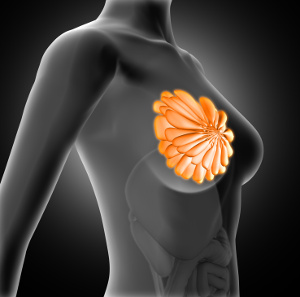 Omega-6 fatty acids, which are mainly found in seed oils, margarine, deep-fried foods, and industrially processed foods, are known to promote the growth of a particularly aggressive type of breast cancer. This was seen in a new study published in Science. Although omega-6 fatty acids are essential for life, many people consume far too much omega-6 through refined diets, and this contributes to the rising incidence of breast cancer and many other diseases. According to previous research, it is important for omega-6 fatty acids to be correctly balanced with omega-3 fatty intake, which can regulate the harmful activity in breast cancer cells. With this insight, researchers see new potential in the prevention and treatment of breast cancer.
Omega-6 fatty acids, which are mainly found in seed oils, margarine, deep-fried foods, and industrially processed foods, are known to promote the growth of a particularly aggressive type of breast cancer. This was seen in a new study published in Science. Although omega-6 fatty acids are essential for life, many people consume far too much omega-6 through refined diets, and this contributes to the rising incidence of breast cancer and many other diseases. According to previous research, it is important for omega-6 fatty acids to be correctly balanced with omega-3 fatty intake, which can regulate the harmful activity in breast cancer cells. With this insight, researchers see new potential in the prevention and treatment of breast cancer.







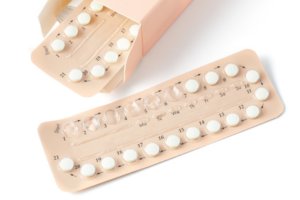 Birth control pills are commonly used as a source of prevention. Most women seem to tolerate the pills rather well, but there are known side effects such as headaches, mood swings, and a slightly increased risk of blood clots and breast cancer. The different side effects are a result of the birth control pills and their disturbing impact on various enzyme processes, which depend on most B vitamins, vitamin C, magnesium, selenium, and zinc. Vitamin C, zinc, and selenium also serve as effective antioxidants that protect our cells and cardiovascular system against oxidative stress. It is therefore essential to get plenty of these nutrients in order to lower the risk of side effects.
Birth control pills are commonly used as a source of prevention. Most women seem to tolerate the pills rather well, but there are known side effects such as headaches, mood swings, and a slightly increased risk of blood clots and breast cancer. The different side effects are a result of the birth control pills and their disturbing impact on various enzyme processes, which depend on most B vitamins, vitamin C, magnesium, selenium, and zinc. Vitamin C, zinc, and selenium also serve as effective antioxidants that protect our cells and cardiovascular system against oxidative stress. It is therefore essential to get plenty of these nutrients in order to lower the risk of side effects.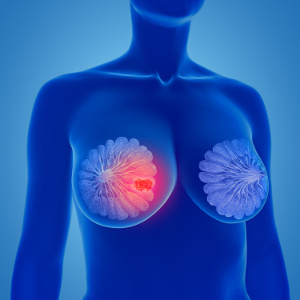 Breast cancer is the leading cancer form among women. Even though treatments have gotten a lot better the disease still has a high death toll. A Swedish-German study shows that having low levels of
Breast cancer is the leading cancer form among women. Even though treatments have gotten a lot better the disease still has a high death toll. A Swedish-German study shows that having low levels of 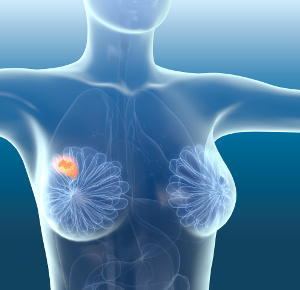 Having higher blood levels of
Having higher blood levels of  For decades, science has had its focus on
For decades, science has had its focus on 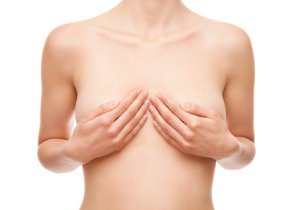 Iodine's ability to protect against breast cancer has been demonstrated in animal studies. Furthermore, epidemiological studies suggest that consuming more dietary iodine lowers the risk of the dreaded disease, which represents 25% of all cancers in women.
Iodine's ability to protect against breast cancer has been demonstrated in animal studies. Furthermore, epidemiological studies suggest that consuming more dietary iodine lowers the risk of the dreaded disease, which represents 25% of all cancers in women.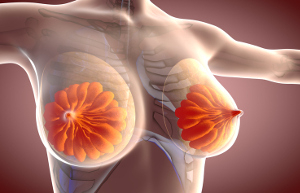 Breast cancer is the number one cause of cancer-related deaths among women worldwide. The diet has huge importance and according to a new Polish study, eating more fish with
Breast cancer is the number one cause of cancer-related deaths among women worldwide. The diet has huge importance and according to a new Polish study, eating more fish with 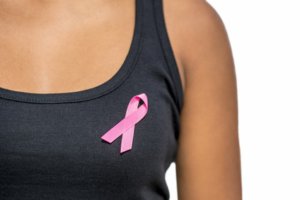 Decades of research show that there is a link between lack of vitamin D and an increased risk of breast cancer. Vitamin D deficiencies are especially common at the northern latitudes because the sun sits too low in the sky for humans to be able to synthesize the vitamin during the winter. However, even in the southern hemisphere, many women have too little vitamin D because of spending too much time indoors, using too much suncream, or veiling themselves. Vitamin D has many anti-cancer properties, and postmenopausal women with too little vitamin D in their blood, who are diagnosed with breast cancer, have worse odds, according to a study of Brazilian women. In other words, it is not enough to treat breast cancer with surgery, chemotherapy, and radiation. You also need to optimize your blood levels of vitamin D and other nutrients, which the body needs in order to function optimally.
Decades of research show that there is a link between lack of vitamin D and an increased risk of breast cancer. Vitamin D deficiencies are especially common at the northern latitudes because the sun sits too low in the sky for humans to be able to synthesize the vitamin during the winter. However, even in the southern hemisphere, many women have too little vitamin D because of spending too much time indoors, using too much suncream, or veiling themselves. Vitamin D has many anti-cancer properties, and postmenopausal women with too little vitamin D in their blood, who are diagnosed with breast cancer, have worse odds, according to a study of Brazilian women. In other words, it is not enough to treat breast cancer with surgery, chemotherapy, and radiation. You also need to optimize your blood levels of vitamin D and other nutrients, which the body needs in order to function optimally. Texting, reading emails and surfing the net in bed is bad for your health. The blue light that is emitted from the devices inhibits sleep and work performance, according to scientific experts.
Texting, reading emails and surfing the net in bed is bad for your health. The blue light that is emitted from the devices inhibits sleep and work performance, according to scientific experts.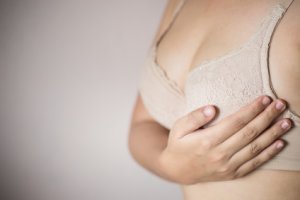 Breast cancer is one of the most widespread cancer forms, with 80% of cases being classified as estrogen receptor-positive. The risk of this type of breast cancer increases when you receive hormone therapy with estrogen (estradiol). The risk is also increased by hormone-disrupting substances in the environment. However, a new study shows that melatonin is able to inhibit a gene that influences the estrogen receptors in breast cancer cells. Melatonin is primarily known for its role as a sleep hormone, but an increasing amount of research shows cancer-protective potential. It is therefore essential to make enough melatonin yourself or to compensate for deficiencies by taking melatonin supplements
Breast cancer is one of the most widespread cancer forms, with 80% of cases being classified as estrogen receptor-positive. The risk of this type of breast cancer increases when you receive hormone therapy with estrogen (estradiol). The risk is also increased by hormone-disrupting substances in the environment. However, a new study shows that melatonin is able to inhibit a gene that influences the estrogen receptors in breast cancer cells. Melatonin is primarily known for its role as a sleep hormone, but an increasing amount of research shows cancer-protective potential. It is therefore essential to make enough melatonin yourself or to compensate for deficiencies by taking melatonin supplements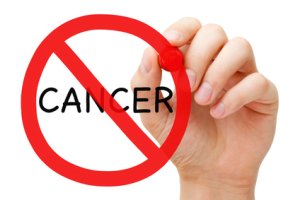 Melatonin is primarily known for its role as a sleep hormone. Nonetheless, studies reveal that melatonin has a variety of anti-cancer properties, and supplementing with the substance may increase the effect of chemotherapy while counteracting its side effects.
Melatonin is primarily known for its role as a sleep hormone. Nonetheless, studies reveal that melatonin has a variety of anti-cancer properties, and supplementing with the substance may increase the effect of chemotherapy while counteracting its side effects.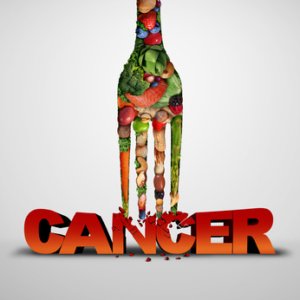 People, who eat nutrient-depleted diets, have an increased risk of contracting cancer, according to a French study that is published in PLoS Medicine. The scientists therefore recommend labeling food to help consumers make healthier choices. In the Nordic countries, we already have the “Keyhole label” on certain healthy food items, but even if you follow the official dietary guidelines, it may be difficult to get enough vitamin D and selenium, both of which are nutrients with several anti-cancer mechanisms.
People, who eat nutrient-depleted diets, have an increased risk of contracting cancer, according to a French study that is published in PLoS Medicine. The scientists therefore recommend labeling food to help consumers make healthier choices. In the Nordic countries, we already have the “Keyhole label” on certain healthy food items, but even if you follow the official dietary guidelines, it may be difficult to get enough vitamin D and selenium, both of which are nutrients with several anti-cancer mechanisms. One in nine Danish women gets breast cancer, and the situation is not improving, on the contrary. One of the reasons why breast cancer is so widespread is that so many women lack
One in nine Danish women gets breast cancer, and the situation is not improving, on the contrary. One of the reasons why breast cancer is so widespread is that so many women lack 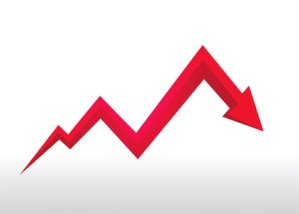 Although cancer treatments have improved drastically, science has still not managed to break the curve. On the contrary. A growing number of people contract cancer, and that is why we should focus more on the trace element,
Although cancer treatments have improved drastically, science has still not managed to break the curve. On the contrary. A growing number of people contract cancer, and that is why we should focus more on the trace element, 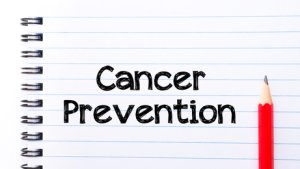 All our cells contain different
All our cells contain different 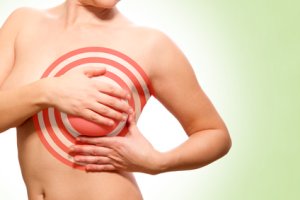 Melatonin is primarily for its role as a sleep hormone. However, it also increases the effect of tamoxifen and reduces side effects in the aftercare of breast cancer. Science has known about melatonin's cancer preventative properties for quite some time, and by embedding the hormone in small "lipid bubbles", tamoxifen is able to destroy even more breast cancer cells, according to Iranian research.
Melatonin is primarily for its role as a sleep hormone. However, it also increases the effect of tamoxifen and reduces side effects in the aftercare of breast cancer. Science has known about melatonin's cancer preventative properties for quite some time, and by embedding the hormone in small "lipid bubbles", tamoxifen is able to destroy even more breast cancer cells, according to Iranian research.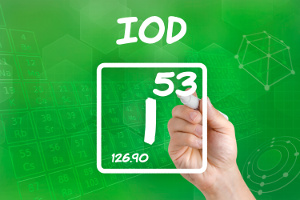 We humans are exposed to a host of toxic fluoride compounds from food packaging, cookie sheets, rain clothes, impregnation agents, tap water, toothpaste etc. Effective July 1., 2020, cardboard, parchment paper, and cookie sheets that contain fluoride compounds are banned in Denmark. Fluoride poisoning increases the risk of various thyroid disorders, breast cancer, kidney diseases, ADHD, and fetal damage. At the same time, it increases the need for
We humans are exposed to a host of toxic fluoride compounds from food packaging, cookie sheets, rain clothes, impregnation agents, tap water, toothpaste etc. Effective July 1., 2020, cardboard, parchment paper, and cookie sheets that contain fluoride compounds are banned in Denmark. Fluoride poisoning increases the risk of various thyroid disorders, breast cancer, kidney diseases, ADHD, and fetal damage. At the same time, it increases the need for 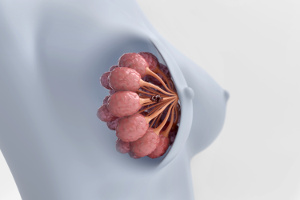 Breast cancer is most widespread in the western countries, and it is the leading cause of cancer-related deaths among women. Diet and lifestyle play a key role in the development of the disease. Earlier studies have shown that eating more oily fish or taking fish oil supplements that contain the
Breast cancer is most widespread in the western countries, and it is the leading cause of cancer-related deaths among women. Diet and lifestyle play a key role in the development of the disease. Earlier studies have shown that eating more oily fish or taking fish oil supplements that contain the  There are several kinds of vitamin D with the two most important being:
There are several kinds of vitamin D with the two most important being: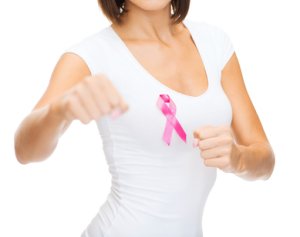 Low blood levels of vitamin D are associated with an increased risk of breast cancer. Also, breast cancer patients with optimal levels of vitamin D in their blood can expect to live longer than breast cancer patients with low blood levels of the nutrient. But how much vitamin D is needed to prevent the dreaded disease?
Low blood levels of vitamin D are associated with an increased risk of breast cancer. Also, breast cancer patients with optimal levels of vitamin D in their blood can expect to live longer than breast cancer patients with low blood levels of the nutrient. But how much vitamin D is needed to prevent the dreaded disease? According to a new study, supplementing with large doses of
According to a new study, supplementing with large doses of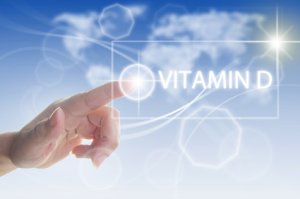 - are you getting enough, though?
- are you getting enough, though?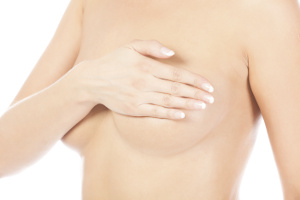 The summer sun is our primary source of
The summer sun is our primary source of  "After about one week of taking the Q10 supplement I could feel a huge difference," says 23-year old Alan Piccini, who has been suffering from extreme fatigue and muscle aches ever since he was a child.
"After about one week of taking the Q10 supplement I could feel a huge difference," says 23-year old Alan Piccini, who has been suffering from extreme fatigue and muscle aches ever since he was a child. “Taking capsules with co-enzyme Q10 has freed me of the severe side effects of my cholesterol lowering medicine,” Mrs Franken explains.
“Taking capsules with co-enzyme Q10 has freed me of the severe side effects of my cholesterol lowering medicine,” Mrs Franken explains.